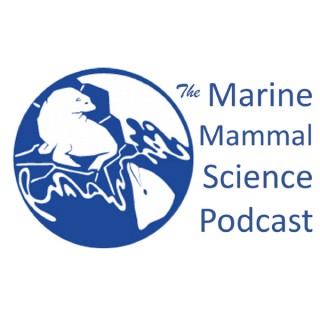Podcast appearances and mentions of shah selbe
- 18PODCASTS
- 20EPISODES
- 48mAVG DURATION
- ?INFREQUENT EPISODES
- Jul 19, 2022LATEST
POPULARITY
Best podcasts about shah selbe
Latest news about shah selbe
- Elon Musk's Twitter Blue is a verified disaster Daily Kos - Apr 27, 2023
- ‘Remix it and let it evolve’: Q&A with FieldKit developer Shah Selbe Conservation news - Aug 23, 2022
Latest podcast episodes about shah selbe
Episode 7: Conservify Founder Shah Selbe | Open Source Conservation
This week, 2019 Hackaday prize winner and 2022 Hackaday Prize Judge, Shah Selbe is here! Shah is the founder of Conservify and Managing Director at FieldKit, and a former resident here at DesignLab. It's amazing to see how far he's come. With his background in engineering and conservation, Shah works with developing countries and communities to come up with Open Source solutions for their biggest environmental problems. Recently, Shah's been living the dream! National Geographic hired him and his company, Conservify, to go on expeditions with scientists and conservationists. There they've been monitoring water in the Amazon Forest, watching the behaviorisms of lowland gorillas in Congo, and so much more. Throughout this episode, Shah breaks down how open source technology is a key component for environmental and wildlife conservation and how Conserverify and FieldKit are adding to these conservation efforts. With that being said, enjoy the episode! You can follow @Supplyframe and @Hackaday on Instagram, LinkedIn, YouTube, and Twitter, and @SupplyframeDesignLab on Instagram and Twitter. The BOM is a Supplyframe podcast hosted by Majenta Strongheart, written, produced, and edited by Frank Driscoll and co-edited by Daniel Ferera. Executive producers are Ryan Tillotson and Tyler Nielsen. Theme music is by Ana Hogben, with show art by Thomas Schneider. Special thanks to Giovanni Salinas, Bruce Dominguez, Thomas Woodward, Jin Kumar, Jordon Clark, Matt Gunn, the entire Supplyframe Team, and you, our wonderful listeners.
Conservation Engineering: Saving Nature
Shah Selbe is a conservationist, engineer, explorer, and entrepreneur developing technology-based solutions to solve some of the planet’s biggest conservation challenges. A satellite propulsions engineer by training, Shah’s low-cost, often open-source solutions have been implemented in some of the harshest environments here on Earth, including oceans, deserts, glaciers and rainforests. His technologies have monitored species ranging from Sri-Lankan blue whales to Congo’s lowland gorillas. In this episode of Create the Future, Shah explains his passion for ‘wild engineering’, exploring, and all the ways in which GPS trackers, drones, camera traps, sensors, satellites, and open-source solutions can help conserve threatened species, populations, and environments. New episodes of ‘Create the Future: An Engineering Podcast’ every other Tuesday. www.qeprize.org/podcasts
Episode 65: Engineering a brighter future with National Geographic's Shah Selbe
Eric and Caitlin welcome engineer, conservation technologist, rocket scientist AND National Geographic Explorer Shah Selbe to the show! We talk about Shah's travels around the globe, the process that goes behind sending satellites into orbit and we bluntly grill Shah on tips for how to help Earth recover from a never-ending barrage of ecological damage. We also find out if Shah has what it takes to survive an evening with Hannibal Lecter when he takes our Choose Your Own Adventure-styled quiz! SPOOKTOOOBER .... Help us grow! Rate, subscribe, and review our podcast on Apple Podcasts Follow us on Instagram, Twitter, and Spotify Find bonus episodes on our Patreon for $5/mo plus personalized playlists! Episodes include deep dives into movie classics, scene readings with special guests, and Doug (TV show) deep dives. That's showbiz, baby! xo, Caitlin Dee, Thee Eric Wynn, Murph, Dinah, and Prince Charming --- This episode is sponsored by · Anchor: The easiest way to make a podcast. https://anchor.fm/app Support this podcast: https://anchor.fm/gothyearbookafterhours/support
Maya speaks with Shah Selbe, an engineer with 10 years of experience in spacecraft propulsion engineering who started his own non-profit organization in order to answer the question ‘how can technology play a bigger role in conservation?'. During this episode of the Conservation Cast, Maya spoke with Shah about the origin of Conservify, and the issues in conservation which Shah aimed to address with the creation of open-source field kits. The two discussed the significance of a Field Kit's ability to provide a platform which allows people to monitor their environment, and not only visualize the collected data, but give the ability to share said data with others. Shah shared his experience as a National Geographic Explorer and explained how it led to his creation of one of the only non-profit tech labs in the world. Additionally, Shah answered viewer's questions such as his ideas for future advancements to the Field Kit, and some of his favorite stories from people's usage of Field Kits. Conservify Maya's community raised $2207.77 for Conservify, a non-profit organization that seeks to empower conservationists and communities by lowering the barriers to entry for effective conservation. Conservify provides platforms, apps, and connected devices in order to build an open conservation community within conservation technology.
Reading With Your Kids - Saving The Planet With Tech
This is a republication of a Solve For Kids Podcast. Shah Selbe is a busy guy. He is a Rocket Scientist, Conservation Technologist and a National Geographic Explorer! He is on the Solve It For Kids Podcast to tell us how he created his own job and, more importantly, let us know how technology can help us conserve the planet!
In this episode of the podcast, I'm speaking with Shah Selbe - a Conservation Technologist. We get technical with conservation engineer Shah Selbe and Fieldkit, his project to make low-cost, connected sensors you can use anywhere in the world (except maybe a boiling river in the Amazon). Also mentioned: Christine Liu's Art about Art & Science, DAT protocols, Los Angeles Unified School District's Data Science curricula.
Shah Selbe is a busy guy. He is a Rocket Scientist, Conservation Technologist and a National Geographic Explorer! He is on the Solve It For Kids Podcast to tell us how he created his own job and, more importantly, let us know how technology can help us conserve the planet!
New technologies deliver cutting edge conservation, discussion with Shah Selbe
Shah Selbe is a rocket scientist who put his engineering skills into building a lab that uses open-source technologies to empower local communities to solve conservation challenges. His team has been deploying technologies like drones, sensor networks, smartphone apps, and acoustic buoys to monitor protected areas, wildlife, and biodiversity. But their big news is the launch of the open-source hardware and online platform FieldKit that anyone can use to deploy a local sensing network and mesh that with remote sensing data for real-time ecosystem monitoring: he joins us to discuss its potential plus the conservation tech he’s currently most excited about. Here’s this episode’s top news: China beefs up wildlife trade ban as COVID-19 outbreak intensifies ‘Out of control’: Unprecedented fires ravage Brazil’s Pantanal wetlands Camera traps confirm presence of lowland gorillas in central mainland Equatorial Guinea for first time in over a decade If you enjoy this show, please invite your friends to subscribe via Android, Apple Podcasts, Google Podcasts, Stitcher, TuneIn, Spotify, Pandora, or wherever they get podcasts. Please visit www.patreon.com/mongabay to pledge a dollar or more to keep this show growing, Mongabay is a nonproft media outlet and all support helps! See our latest news from nature's frontlines at Mongabay's homepage: news.mongabay.com or find us on Facebook, Twitter, and Instagram by searching for @mongabay. Feedback is always welcome: submissions@mongabay.com.
MMS 003: Marine Mammal Monitoring Using Drones With Shah Selbe
National Geographic explorer Shah Selbe talks with Dr. Chris Parsons about using drones for marine mammal research, and how they are being used to study endangered blue whales in Sri Lanka.
23 - Conservation Engineering and Open Data - Applying The Mindset Of The Tech Community To Environmental Issues - Shah Selbe, Conservify
Shah Selbe is a spacecraft engineer turned conservation technologist and founder of non-profit Conservify, whose mission it is to lower barriers to entry for effective conservation by providing anything from equipment to apps and all with a big push towards open-data. For more info on Conservify head to www.conservify.org You can find Shah on Twitter @shahselbe Conservify @conservify on both Twitter and Instagram Field kit @fieldkitorg also both on Twitter and Instagram Please join the new Facebook community page at https://www.facebook.com/groups/disruptiveenvironmentalist And a like and share would be awesome too!
Turtles have been around since the days of the dinosaurs, but are they about to follow them into extinction? Conservation scientist Kim Williams-Guillén is doing her best to prevent that. In this episode of ‘Fixed That For You’ we combine 'Breaking Bad,' a Hollywood special effects expert, and a 3D printer to track down poachers on remote tropical beaches. 'Fixed That For You' is an original podcast from Segment. For more on the series go to fixedthatforyou.com. Take a look at National Geographic’s short video to learn more about sea turtles. Sea Turtle Conservancy is the oldest organization in the world working towards saving sea turtles through research, advocacy, and education. Kim Williams-Guillén is a conservation scientist at Paso Pacifíco, an American environmental group working in Nicaragua. Have a project that’s geared towards conservation technologies? Apply for a grant through National Geographic. Conservify is mentioned in this episode. You can learn more about the type of tools and technologies they provide conservationists by clicking here.
In this episode of Talk Nerdy, Cara is joined in studio by National Geographic Explorer and conservation technologist, Shah Selbe. They talk about his work as the founder of Conservify, a non-profit organization dedicated to the democratization of data and technology to aid in global conservation. Follow Shah: @ShahSelbe.
In this episode of Talk Nerdy, Cara is joined in studio by National Geographic Explorer and conservation technologist, Shah Selbe. They talk about his work as the founder of Conservify, a non-profit organization dedicated to the democratization of data and technology to aid in global conservation. Follow Shah: @ShahSelbe.
Conservation Technology (EARTH SAVING) with Shah Selbe
THIS IS UPLIFTING, I PROMISE. And it might just make you switch careers. As a bookend to last week's Oceanology episode, Conservation Technologist Shah Selbe chats about saving the planet with some well-intentioned technology. Wind turbines, solar cars, and all the ways in which sensors, drones, recycled smartphones and real-time data reporting can help conserve species, spaces and communities that are threatened. Hear inspiring tales of travel, art, adventure and putting engineering to good use from a former rocket-science turned professional do-gooder. Also discussed: crocodile astrology, fishing vests and hippo power displays. Conservify.org Shah Selbe on Twitter and Instagram Become a patron of Ologies for as little as a buck a month: www.Patreon.com/ologies OlogiesMerch.com has hats, shirts, pins, totes! Follow @Ologies on Twitter or Instagram Follow @AlieWard on Twitter or Instagram More links at www.alieward.com Sound editing by Steven Ray Morris Theme song by Nick Thorburn And check out the podcast Flash Forward, hosted by Rose Eveleth: www. flashforwardpod.com. So good! Support the show.
National Geographic has launched a new prize for marine protected area technologies and we spoke with brainchild Shah Selbe. For more on the prize visit: https://www.marineprotectionprize.com/ Music by Midnight Snackers and Lee Rosevere
Conservation Technology with Shah Selbe — How iPhones Can Stave-Off Mass Extinction
Shah Selbe’s work puts him at the intersection of the world’s most famous exploration organization and cutting-edge technology. A conservation technologist, Selbe is a fellow with the National Geographic Society and uses drones, sensors, and smartphones on expeditions in order to change the way we protect the world’s wild species and spaces. Though his work takes him to some of the most far-flung reaches of the planet, Selbe runs a nonprofit lab in downtown Los Angeles called Conservify where he can prototype and build new technology to share through open source software for the public and scientists alike. Produced by Collin Hughes Script & Narration by Frankie Caracciolo Audio by Elphick Wo P --- Support this podcast: https://anchor.fm/maekan/support
What happens when you take a Boeing-grade rocket scientist and send him all over the planet with National Geographic? You birth an entirely new industry. Shah Selbe is one of the key pioneers of Conservation Tech, a field that combines social media, technology, science and social psychology to solve the Earth's problem. As a NatGeo Explorer, he is one of few selected to go on MacGyver-like missions in remote areas most affected by things like climate change, poaching, illegal fishing, drilling, extinction, and sometimes mother nature herself. Along the way, he has coined the phrase, "Internet of Earth Things," highlighting the fact that next evolution of digital/social connectivity is being connected to the planet. On Innovation Crush, Shah discusses the hurdles of being a young scientist among is stayed peers, his transition from rocket to earth science, his desire to work with VC's, and and that one time he used a FedEx strategy to solve a fishing problem.
Shah Selbe (National Geographic Society) - Find Your Niche, Help the World
National Geographic Explorer Shah Selbe describes how much Earth needs technologists with an entrepreneurial spirit to address global challenges and conserve the planet's resources. A spacecraft-propulsion engineer by training, Selbe shares profound experiences from expeditions in the wild and calls on the next wave of innovators to find their passion and realize that opportunities exist everywhere.
Shah Selbe (National Geographic Society) - Find Your Niche, Help the World
National Geographic Explorer Shah Selbe describes how much Earth needs technologists with an entrepreneurial spirit to address global challenges and conserve the planet's resources. A spacecraft-propulsion engineer by training, Selbe shares profound experiences from expeditions in the wild and calls on the next wave of innovators to find their passion and realize that opportunities exist everywhere.
Shah Selbe (National Geographic Society) - Find Your Niche, Help the World
National Geographic Explorer Shah Selbe describes how much Earth needs technologists with an entrepreneurial spirit to address global challenges and conserve the planet's resources. A spacecraft propulsion engineer by training, Selbe shares profound experiences from expeditions in the wild and calls on the next wave of innovators to find their passion and realize that opportunities exist everywhere.





















